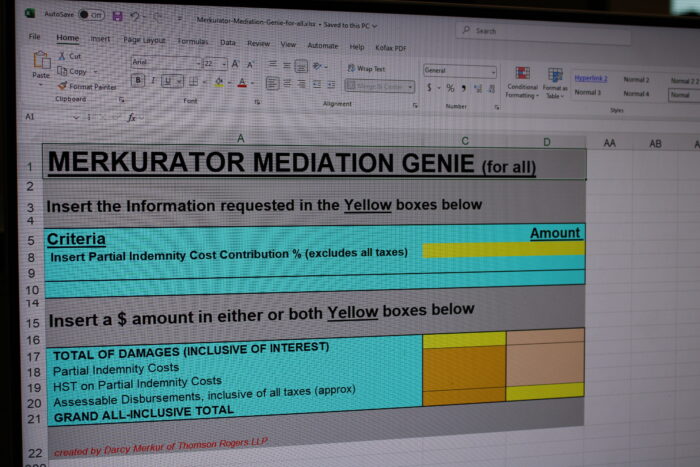What to Expect at the Mediation of your Personal Injury Claim – One Lawyer’s Perspective
Author(s): Stephen M. Birman*
September 16, 2019

After years of litigation, I have noticed that clients look forward to mediation with great anticipation. It is the day they hope to see their case resolved. While not all cases settle at mediation, almost all lengthy personal injury claims involve at least one mediation before going to trial.
Every lawyer views and handles mediation differently. I encourage clients to be optimistic about their mediation and stress that if nothing else, it will bring their action closer to trial. This is especially true in jurisdictions like Toronto where a mediation must be completed before an action can even be set for trial. And even then, in Toronto and other busier courthouses, your trial is likely 2 years away.
My clients understand that mediation is nothing like discovery which puts most people at ease. At discovery, the client testifies under oath and under a microscope about the most traumatic events in their life; whereas at mediation clients are not forced to answer any questions.
I explain how mediation works long in advance. On the day of the mediation when everything comes into focus, I meet my client in the morning and thoroughly review the strengths and weaknesses of their case, remind them how the mediation process works and provide my assessment regarding a fair settlement range for their case.
When it comes to the settlement, I emphasize that there is no scientific formula for determining the appropriate compensation. Ultimately the parties need to agree on a fair resolution or leave that task up to a jury whose assessment will be anything but scientific. It is very important that clients’ understands my assessment, so that they are able to evaluate the other side’s offers.
I explain the role of the mediator and try and give my client a sense of the mediator’s personality, that way they are not surprised if they encounter one of the more eccentric mediators. I explain that if they find themselves frustrated by the mediator or not enjoying his/her style it probably means the mediator is doing a good job and that the people in the other room likely feel the same way.
To prepare for the brief openings, that are part of most mediations, I advise my client of exactly what I expect the other lawyer to say to them. I explain that the other lawyer may get some things wrong and/or say something upsetting. I urge clients never to interrupt or react negatively. I recommend they simply take notes as there are many opportunities throughout the day to correct inaccuracies the other side has presented.
After the openings, the parties usually spend most of the day negotiating in separate rooms with the mediator shuffling between the rooms. Typically the other side will make a “terrible” first offer and probably a very poor second one. During mediation, there will be multiple offers exchanged and typically the parties don’t get near their final positions until the clock strikes 12 (or at least until after lunch is served…).
Some clients wish to participate actively throughout the mediation while others simply wish to tell me their “bottom line” and not be too involved with each offer. I let clients decide how actively they wish to participate but emphasize that at the end of the day, I can only make a recommendation and the client needs to make a decision based on their own circumstances.
I do not know what percentage of mediations settle. Everyone has different stats and most mediators don’t want to share theirs. However, I believe that more personal injury cases settle at mediation than at any other stage.
I also believe the mediation process has some therapeutic value for clients. It allows clients to put a face to the insurance company and usually hear from an insurance adjuster who is able to offer sympathies, which can sometimes be meaningful. It allows clients to engage deeply in their case and participate in the process.
On the best of days when a matter settles, mediation brings some closure to a terrible trauma. If the matter settles and everyone leaves the room a little unhappy, as compromise often makes people feel, there is at least some satisfaction from the fact that a long running dispute is finally over.
Share this





